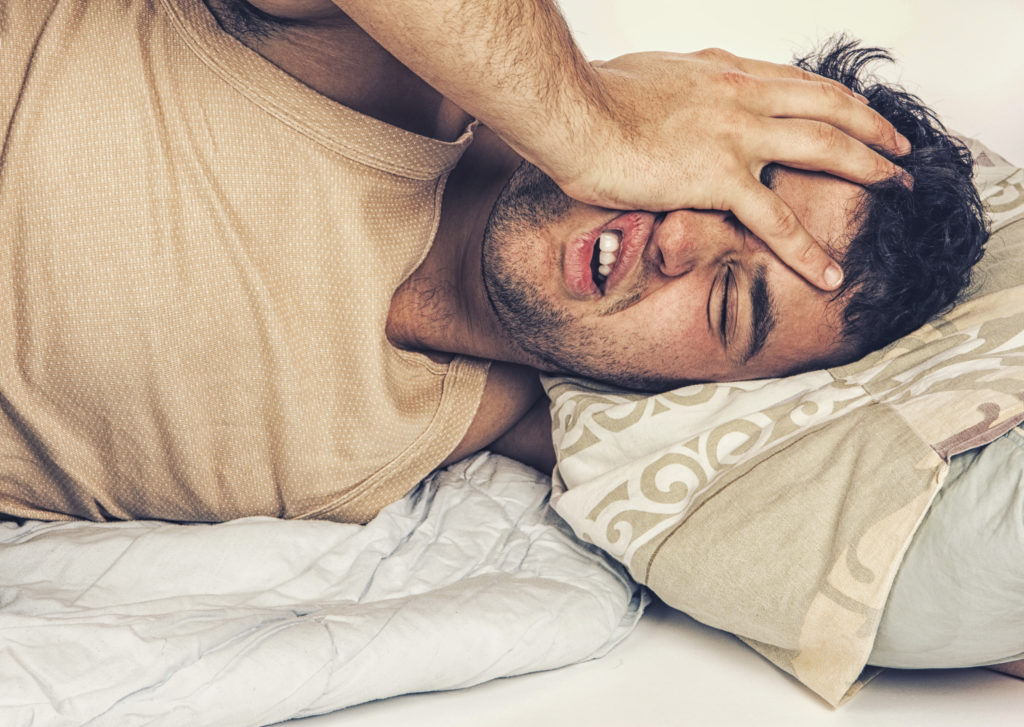Sleep vs. Pain: The Battle for Rest with Arthritis
Is arthritis pain and stiffness keeping you up at night? When you’re struggling with fatigue, the last thing you need to do is toss and turn your way into sleep deprivation. 
It’s estimated that around 50 per cent of individuals with arthritis have trouble sleeping. Coupled with fatigue caused by inflammation, lack of sleep can impact a person’s ability to function in daily life.
“You might have a big day ahead of you and that can fall apart if you don’t get enough sleep,” said Eileen Davidson, a member of Arthritis Research Canada’s Patient Advisory Board. “It’s not you that’s flaky. It’s your health that flakes out. It happens with chronic pain and chronic illness.”
But even though it happens, there are ways to increase the chance of a good night’s sleep – especially during the summer months when heat can lead to swelling and further discomfort.
Eileen was diagnosed with rheumatoid arthritis, osteoarthritis and fibromyalgia before age 33. She is also a single mother to a young son, so life can’t stop because she has arthritis or is tired. For this reason, Eileen takes sleep seriously and has some excellent tips for getting some shut-eye.
Set the stage
- Consider switching to a medium or firm mattress. Softer mattresses can cause pressure to build in joints and aggravate existing arthritis symptoms. If a medium or firm mattress is too firm, try adding a memory foam mattress topper.
- Wear loose, breathable clothing and use cotton sheets.
- Make sure to have extra pillows on hand and use them to support/elevate inflamed joints.
- At the peak of summer heat, cold Magic Bags or ice packs can relieve inflammation. Fresh air, an air conditioner, humidifier and diffuser can also make a difference.
- Consider using a white noise machine. Sleep is partly mental and white noise can distract from worrying about not being able to fall asleep.
Develop a pre-sleep routine
- Even in the summer, taking a hot bath with Epsom salt or essential oils like lavender and peppermint can loosen joints and reduce pain.
- Try using a guided meditation app. Living with arthritis can come with mental health issues. It’s not just pain. It’s the stressing about being in pain. Meditation can help with relaxation before bed.
- Yoga or stretching exercises can also relieve tension. But try not to get your heart rate up 4-5 hours before going to sleep.
- Make sure you are well hydrated before going to bed.
General tips to help you catch some z’s
- Build exercise into your weekly schedule. It’s good for your joints and overall health and may just get your sleep on track.
- Eat a healthy diet and avoid consuming junk food late at night.
- If you need help falling asleep, you may consider sleeping pills or Melatonin as options. Although no conclusive research has been conducted, some patients also report benefits from cannabidiol (CBD) gummies. Regardless of the option you choose, it is important to note that these aides can result in deep sleep and stiff joints in the morning.
For those times that you don’t get enough nighttime sleep, Eileen recommends taking little moments of rest throughout the day to recharge. This can involve sitting silently or napping for 30-40 minutes. She also recommends giving your medication time to work. It doesn’t make a difference overnight. And it might take several medications to find the right one to manage your inflammation and pain.
All inflammatory arthritis that is un- or poorly controlled causes night pain that can interfere with sleep, according to Dr. John Esdaile, Arthritis Research Canada’s Scientific Director.
“Pain can move a person out of deep sleep even if they don’t wake up,” he said.
If you are having trouble sleeping due to pain, consider making an appointment with your rheumatologist.




















































